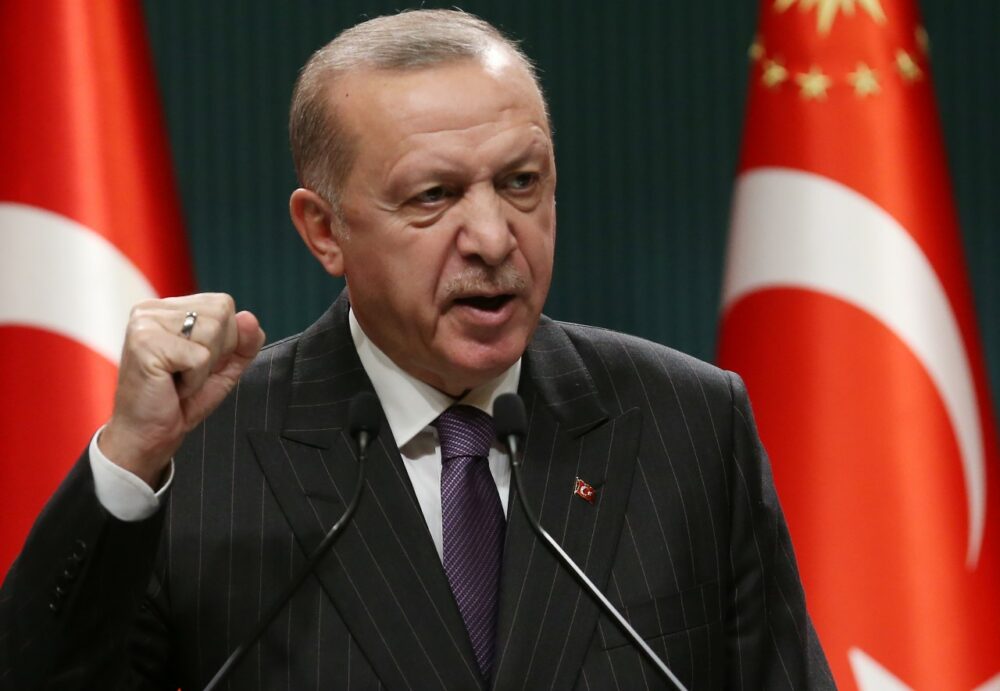Turkish prosecutors investigated 128,872 people for insulting President Recep Tayyip Erdoğan between 2014 and 2019, the Duvar news website reported.
The number of individuals facing criminal investigation has increased every year and reached 36,066 in 2019.
Most recently, a Turkish prosecutor indicted four staff members of the French satirical weekly Charlie Hebdo on charges of “insulting” Erdoğan by way of a cartoon published last year.
Since Erdoğan assumed the presidential office in 2014, thousands of people have received prison sentences for insulting him — 2,046 in 2018 and 3,831 in 2019. Article 299 of the Turkish Penal Code (TCK) states that any person who insults the president of the republic faces a prison term of up to four years. This sentence can be increased by a sixth if it has national exposure, and by a third if committed by the press or media. In total 9,554 people have been handed down sentences for insulting the president.
Last week a Turkish court sentenced Kurdish politician Selahattin Demirtaş to three years, six months in prison for insulting President Erdoğan. Demirtaş had criticized Erdoğan in a speech in December 2015, saying he had “flitted from corridor to corridor” hoping to get a picture taken with Russian President Vladimir Putin. Those comments came after Turkish forces shot down a Russian warplane over Syria.
A group of women was also accused of insult for chanting the slogan, “Jump, you’re Tayyip if you don’t!” at the Feminist Night March on March 8.
In a 2016 opinion the Venice Commission had noted with concern the large number of investigations, prosecutions or convictions reported by the press for insulting the president. It had recalled that the European Commission in its 2015 report on Turkey underlined that “there is a widened practice of court cases for alleged insult against the President being launched against journalists, writers, social media users and other members of the public, which may end in prison sentences, suspended sentences or punitive fines.” According to the same report, this intimidating climate has led to increased self-censorship.
According to the Venice Commission, the use of offensive, shocking or disturbing words especially within the context of a debate on matters of public interest are guaranteed by freedom of expression. Expressions that may be perceived in the abstract as denigrating, such as “thief” (in relation to a corruption probe) or “murderer” (in relation to demonstrators who lost their lives during the Gezi protests), “dictator” and the like must be evaluated in their public debate context.
Human rights lawyer Kerem Altıparmak argues that Article 299 of the Turkish Penal Code runs against the provisions of the European Convention on Human Rights, to which Turkey is a party, and should be annulled. The offense of insulting the head of state has been decriminalized in several European countries, and although it is still part of the penal code of Germany, the Netherlands, Belgium and Portugal, there have been no recent convictions.
Source: Stockholm Center for Freedom (SCF)



